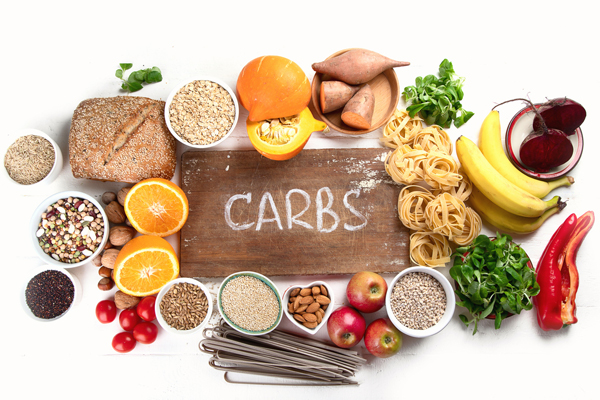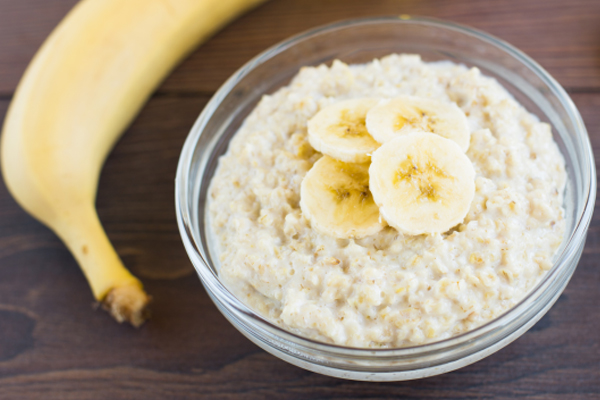
The Power of Carbohydrates
Maximize Your Race Day Performance
by Orlaith Cahill29 Sep 2024
Preparing for race day involves more than just rigorous training; it’s about optimizing your nutrition to ensure peak performance when the starting gun fires. Among the various nutritional strategies, carbohydrates play a pivotal role. Here’s a comprehensive guide on how to use carbs effectively to boost your race performance.
Understanding the Demands of Racing
Before we delve into carbohydrate strategies, let’s first understand the physical impacts of racing:
Sweat Losses: As you sweat, you lose not just fluids but also essential electrolytes. This can lead to dehydration, affecting your performance and recovery.
Reduced Energy Stores: During high-intensity exercise, your body relies heavily on carbohydrates for fuel. If your carbohydrate stores are depleted, your performance will suffer.
Muscle Damage: Strenuous exercise can cause muscle damage, leading to fatigue, nausea, and increased risk of dehydration.
Carbohydrates: The Main Energy Source

Carbohydrates are your body’s primary source of energy, especially during prolonged or high-intensity exercise.
While fats also provide energy, they’re not as efficient at keeping up with the rapid demands of high-intensity activities.
Your body can produce around 120 grams of glucose (a type of sugar) without additional carbohydrate intake, but this may not be sufficient during intense exercise.
Most athletes can store between 500-800 grams of carbohydrates.
However, this might still fall short for optimal performance in high-intensity events.
Ensuring you have enough carbohydrate stores is crucial for:
Increased Exercise Efficiency: Adequate carbs help you perform better with less perceived effort.
Sustained Performance: They support sustained and intermittent high-intensity exercise.
Reduced Fatigue: You’ll experience less fatigue and perceive the effort as lower.
Carb Loading: Your Secret Weapon

Carb loading is a strategic method used to maximize your glycogen stores.
This involves consuming high amounts of carbohydrates in the days leading up to the race.
The goal is to saturate your muscles with glycogen to enhance performance.
For optimal results, aim for 8-10 grams of carbohydrates per kilogram of body weight per day for 24-48 hours before the race. Many athletes see significant benefits with a slightly lower intake of 5-7 grams per kilogram. Focus on carbohydrate-rich foods while reducing fat intake, and remember, it’s about the quality and timing of your carbs, not just increasing your overall food intake.
Race Day Nutrition


Pre-Race
1-4 hours before the race is the optimal time to ‘top up’ your carbohydrate stores after your carb-loading phase. Aim for 1-4 grams of carbohydrates per kilogram of body weight. The type of food you choose should be easily digestible. Ideal pre-race meals include toast, bagels, cereal, porridge, bananas, and cereal bars. If the race is early in the morning, ensure you get adequate sleep and balance your pre-race meal with hydration. For a final boost, consume 25-30 grams of carbs in the 30-60 minutes before the race, such as an energy gel, banana, or dried fruit. Stick to low-fiber, low-fat options to keep your gut comfortable.
During the Race
During races lasting more than 60-90 minutes, consuming carbohydrates can help maintain your energy levels. For events longer than 2.5 hours, using a mix of carbohydrate sources (like glucose and fructose) is most effective. For shorter events, additional carbs won't significantly impact performance.
Post-Race
Recovery is crucial. Within the first 4-5 hours post-race, aim to consume 1-1.2 grams of carbohydrates per kilogram of body weight. This helps replenish glycogen stores and supports recovery. After this period, return to your usual carbohydrate intake but ensure you include high-quality protein (15-30 grams) in your post-race meal to aid muscle repair. Good options include a chicken club sandwich, beef noodle stir-fry, or a salmon bowl. If you’re not up for a big meal, a smoothie made with milk, oats, and fruit can also be effective.
Conclusion
Mastering your carbohydrate intake is a game-changer for race day performance. By strategically managing your carb stores before, during, and after the race, you can enhance your endurance, reduce fatigue, and improve your overall performance. Combined with proper hydration, rest, and recovery, a smart approach to carbohydrates can give you a crucial edge over your competitors. So, embrace these strategies and fuel your way to success on race day!
References:
ACSM (2016) Carb loading: what is new? (mysportscience.com)
Race day breakfast considerations (mysportscience.com) Jeukendrup.A., 2014
Understanding the Demands of Racing
Before we delve into carbohydrate strategies, let’s first understand the physical impacts of racing:
Sweat Losses: As you sweat, you lose not just fluids but also essential electrolytes. This can lead to dehydration, affecting your performance and recovery.
Reduced Energy Stores: During high-intensity exercise, your body relies heavily on carbohydrates for fuel. If your carbohydrate stores are depleted, your performance will suffer.
Muscle Damage: Strenuous exercise can cause muscle damage, leading to fatigue, nausea, and increased risk of dehydration.
Carbohydrates: The Main Energy Source

Increased Exercise Efficiency: Adequate carbs help you perform better with less perceived effort.
Sustained Performance: They support sustained and intermittent high-intensity exercise.
Reduced Fatigue: You’ll experience less fatigue and perceive the effort as lower.
Carb Loading: Your Secret Weapon

For optimal results, aim for 8-10 grams of carbohydrates per kilogram of body weight per day for 24-48 hours before the race. Many athletes see significant benefits with a slightly lower intake of 5-7 grams per kilogram. Focus on carbohydrate-rich foods while reducing fat intake, and remember, it’s about the quality and timing of your carbs, not just increasing your overall food intake.
Race Day Nutrition


1-4 hours before the race is the optimal time to ‘top up’ your carbohydrate stores after your carb-loading phase. Aim for 1-4 grams of carbohydrates per kilogram of body weight. The type of food you choose should be easily digestible. Ideal pre-race meals include toast, bagels, cereal, porridge, bananas, and cereal bars. If the race is early in the morning, ensure you get adequate sleep and balance your pre-race meal with hydration. For a final boost, consume 25-30 grams of carbs in the 30-60 minutes before the race, such as an energy gel, banana, or dried fruit. Stick to low-fiber, low-fat options to keep your gut comfortable.
During the Race
During races lasting more than 60-90 minutes, consuming carbohydrates can help maintain your energy levels. For events longer than 2.5 hours, using a mix of carbohydrate sources (like glucose and fructose) is most effective. For shorter events, additional carbs won't significantly impact performance.
Post-Race
Recovery is crucial. Within the first 4-5 hours post-race, aim to consume 1-1.2 grams of carbohydrates per kilogram of body weight. This helps replenish glycogen stores and supports recovery. After this period, return to your usual carbohydrate intake but ensure you include high-quality protein (15-30 grams) in your post-race meal to aid muscle repair. Good options include a chicken club sandwich, beef noodle stir-fry, or a salmon bowl. If you’re not up for a big meal, a smoothie made with milk, oats, and fruit can also be effective.
Conclusion
Mastering your carbohydrate intake is a game-changer for race day performance. By strategically managing your carb stores before, during, and after the race, you can enhance your endurance, reduce fatigue, and improve your overall performance. Combined with proper hydration, rest, and recovery, a smart approach to carbohydrates can give you a crucial edge over your competitors. So, embrace these strategies and fuel your way to success on race day!
References:
ACSM (2016) Carb loading: what is new? (mysportscience.com)
Race day breakfast considerations (mysportscience.com) Jeukendrup.A., 2014
B.Sc. (Hons) Nut&Diets, PgDip Sport Nut, APD
Clinical and Sports Dietitian
Clinical and Sports Dietitian




